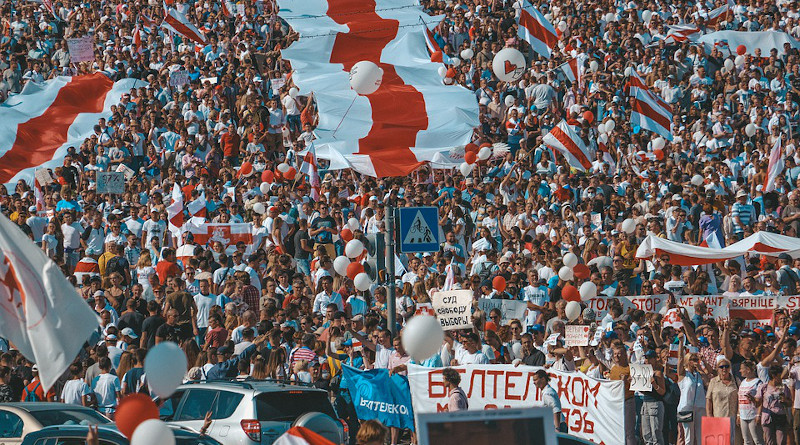Lukashenka’s Repressions May Push Belarusian Demonstrators Into Taking More Serious Defensive Measures – OpEd
By Paul Goble
The anti-Lukashenka protests remain peaceful, but the increasingly harsh response of the regime is radicalizing the views of many taking part in the demonstrations and could lead to a violent response if the dictator steps up his repressive actions further, according to sociologist Oksana Shelest.
In her weekly “Voice of the Streets” report compiled on the basis of her conversations with Belarusians who are demonstrating against Lukashenka, she says people are reacting increasingly negatively to the regime’s repressive actions and have taken to pulling the masks off the perpetrators (thinktanks.by/publication/2020/09/18/golos-ulitsy-aktsii-krome-protestnogo-haraktera-imeyut-vse-bolshiy-komponent-solidarnosti.html).
While most demonstrators place a high value on remaining peaceful and non-violent, Shelest continues, an increasing number say that the escalation of regime attacks on them is attracting more support for the idea that they should form “popular militias” and “self-defense detachments.”
That comes in response to the regime’s increasing pressure on protesters. There have been more detentions and reports of mistreatment, and the authorities are now going after parents who either bring their children to the demonstrations or allow them to take part, the sociologist says.
The regime has been working hard to efface graffiti in support of the demonstrators and to pull down white-red-white flags which have become the symbol of the Belarusians in the streets. There have been cases when officials ordered to take down these flags have refused to do so.
Those taking part in demonstrations say their most important task is to show to everyone that they are numerous and the defenders of the regime are few. And they say they will continue to protest as long as others do even if it costs them their jobs, something they fear will leave them with little time for public activity.
According to Shelest, “the majority of our respondents are certain that those forms of pressure on the Coordination Council that the regime has chosen are not effective, even though its members are either in detention with the exception of Svetlana Aleksiyevich or have been forced to move abroad.
Most Belarusian demonstrators also say that they are largely “indifferent” to what other countries are doing with respect to Lukashenka. They say that Belarusians must decide their fate. They hope that Russia will ultimately side with the people against the dictator, and they hope that Western countries will make clear their antipathy towards Lukashenka.

